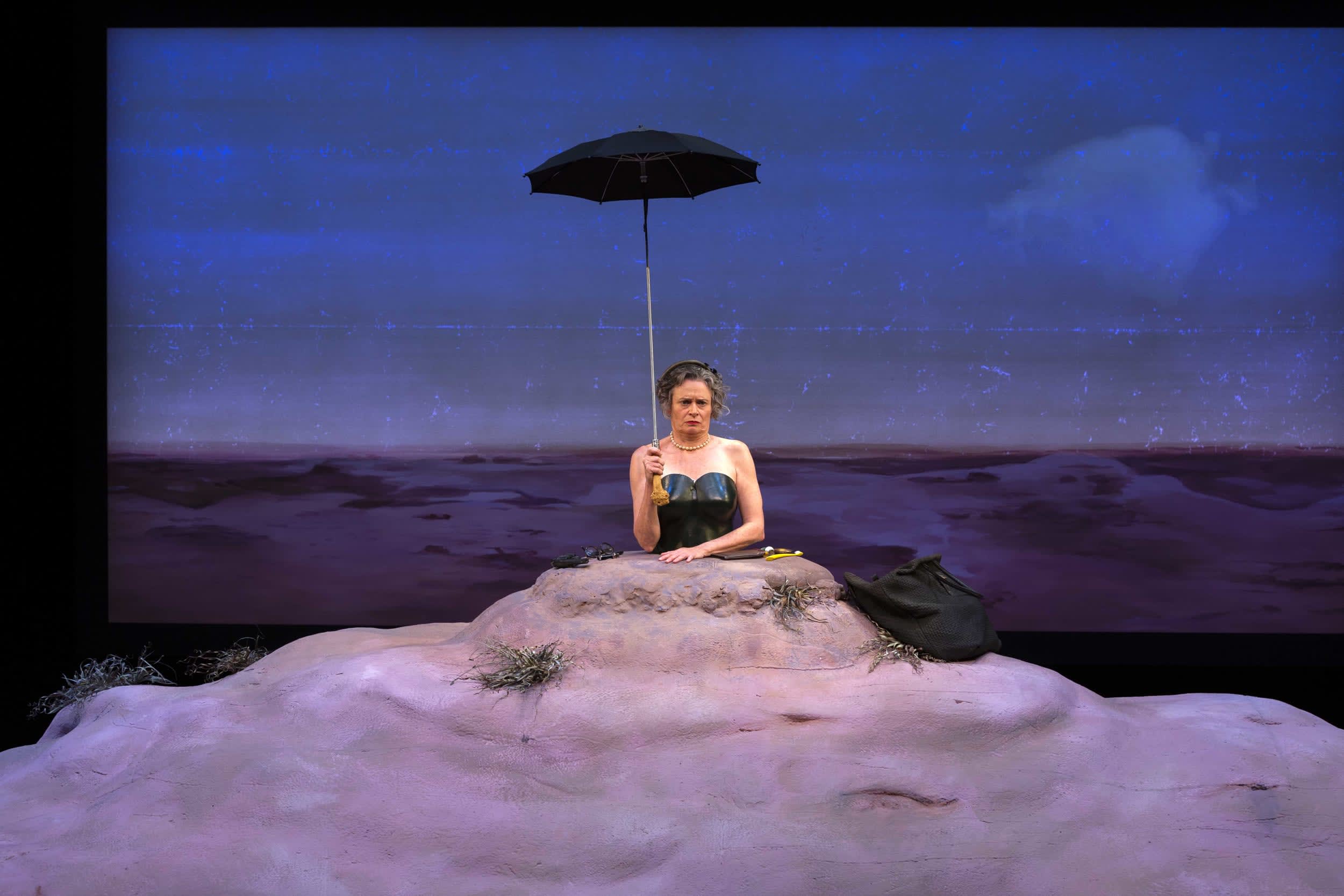Just seen Happy Days and wondering 'what the %&#@ was that?'
Great question.
Samuel Beckett’s work, and in particular Happy Days, has been subject to countless interpretations since its first inception. You are not alone in any amount of bewilderment, confusion or frustration you may or may not be feeling. Let’s dive into some background on Beckett, his masterpiece Happy Days, theatre of the absurd and what we can take away from the play in 2023.
Samuel Beckett who?
You may have heard of Samuel Beckett before in the context of another famous play – Waiting for Godot. Awarded the Nobel Prize for Literature in 1969, the Irish writer penned many short stories, poetry, novellas and plays, influenced by his experiences and encounters with 1930s Paris, service in World War Two, and the inspiration of his dear friend, acclaimed Irish novelist James Joyce.
Beckett chose to avoid conventional or naturalistic elements of time, setting and plot in his writing, instead favouring abstract concepts, punctuated by repetitive dialogue and action. This was typical of what came to be known as ‘Theatre of the Absurd’, rooted in the existentialist philosopher Albert Camus’s ideology that existence itself has no meaning, therefore it is, in essence, absurd. As such, many of Beckett’s characters are often ‘stuck’ or ‘waiting’ – failing to express, to understand or to move beyond their predicament freely.
Utilising language, its musicality, absence or overuse – is a hallmark of Beckett’s writing. His incredibly detailed directions on how each play should be staged and the way the dialogue, down to every line, should be delivered – is legendary. In Happy Days, Winnie is on stage for the entire play, with primarily all of the dialogue – save a few lines from the character of Willie. The sheer volume of words (and directions) within the play can be seen below in this excerpt.
[Raising parasol.] That is the danger. [Turning front.] To be guarded against. [She gazes front, holding up parasol with right hand. I used to perspire freely. [Pause.] Now hardly at all. [Pause.] The heat is much greater. [Pause.] The perspiration much less. [Pause.] That is what I find so [Long pause.] Holding up wearies the arm. [Pause.] Not if one is going along. [Pause.] Only if one is at rest. [Pause.] That is a curious observation. [Pause.] I hope you heard that, Willie, I should be grieved to think you had not heard that.

Judith Lucy in Happy Days. Photo: Pia Johnson
Happy days? She didn’t seem very happy.
The striking image of a woman buried up to her waist contrasted with her endless positivity and prattling – was a conceit Beckett found most intriguing and amusing. Titled Happy Days, Winnie’s buoyancy and optimism remains despite many obstacles – a light in the darkness.
The play opened in the West End in 1962 to mixed reviews from critics, hailed as a triumph of performance yet divided on the intended meaning.
This can be what makes a play like Happy Days fascinating – the vastly different, often visceral, reactions it draws from audiences. What does the bell signify? Is it God? Is Willie reaching for Winnie or the gun? Is it a metaphor for climate change? Are we all simply amusing ourselves to distract from a life that is painful and tedious? Is Winnie an embodiment of the stereotype or preconception of a woman in society? Is our greatest fear purposelessness? Or is it a disconnection from community and humanity?
We can’t give you all the answers, and if anything, we may have raised a few more questions. And rather than coming to conclusions, it is sometimes enough, as in Winnie’s case, to simply ponder.
As Beckett most likely intended, discussion and debate continue to live on, well after the last bell.
Published on 2 June 2023





